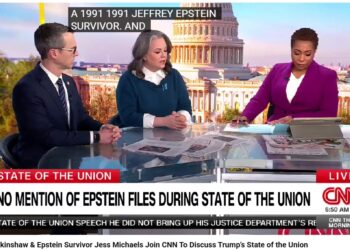
While Bob McDonnell and others in his administration are busy spending that non-existent “budget surplus,” at least one Republican, Del. Ben Cline (R-Rockbridge), sees through the phony numbers and is calling for Bob McDonnell to use the available funds to end what Cline called two accounting maneuvers used to “balance” the state budget – not paying $620 million due to the Virginia Retirement System and forcing merchants to pay their sales tax receipts early.
Cline opposes the planned uses for a fake $400 million “surplus,” mainly for a state employee bonus, a pittance for transportation, etc. Since the phantom money was found by accounting tricks, Cline, along with Del. Ward Armstrong (D-Henry), wants part of the money used to begin paying what the state owes the VRS for this biennium.
Last March, a study by the Pew Center on the States criticized the way the General Assembly and McDonnell used obligations to the state retirement fund to “balance” the budget. While we hear all the time how Virginia is the “best managed state,” the Pew Center study put Virginia’s retirement fund below fifteen other states, in the “needs improvement” category. Plus, the only reason Virginia ranked as well as it did in the study is the fact that more responsible plans run by counties and cities “helped save the state,” according to the VRS board of trustees.
That Pew Center study didn’t even include the worst of the 2008-2009 damage to state retirement funds. Virginia’s underfunded VRS system is not simply the product of the recession, but also caused by deliberate policy moves by the legislature.
A 2008 report by the Joint Legislative Audit and Review Commission stated that state contributions to VRS have been lower than the board certified rate in ten of the last eighteen years, making VRS a bi-partisan loan agency for the Commonwealth. During those same 18 years, localities paid the amount the VRS board certified as necessary.
It should be obvious to other people besides Ben Cline and Ward Armstrong that the obligations the state has accumulated in VRS have to be paid for.
Before anyone draws some comparison to Social Security, please note that until those people hired after July 1, 2010, start paying into the system, no income has been going into the fund from workers, i.e., there was no “VRS tax” comparable to the federal Social Security tax. New money had to come from state and local government.
When the budget passed the General Assembly, it contained a promise to repay VRS $74 million over a decade. That covers this shortfall but raises a simple question: How about the next biennial budget? Will the VRS get $620 million + $74 million? I already know the answer. “No.” In its infinite wisdom (snark), the General Assembly will start paying back that debt in 2013, as luck would have it when Bob McDonnell’s term is ending.
Not only did the General Assembly and the governor use the VRS as a piggy bank, but they drastically changed the system for those entering it after July 1 of this year. While I don’t like the idea of two classes of state retirees, I agree that something had to be done to insure the solvency of the VRS fund far into the future, but it was pretty cowardly for the General Assembly to demand that future employees do their part at the very same time that they exempted themselves from any pain. Instead, they used the VRS as their money cow to avoid raising any revenue to balance their “balanced budget.”
For new hires, VRS will be a very different retirement plan than present employees and retirees have. VRS will require an employee payment into the fund equal to 5% of gross salary. A longer period will be used to determine final pension payment, resulting in a lower figure for most people. Full retirement will no longer be possible for those who are 50 and have 30 years of service, but instead will require 60 years old and 30 years of service. The cost of living adjustment also will be smaller.
Those changes hurt, but they are only half the solution of the VRS problem. The other half is still broken because it is a victim of “GOPer economics” – borrow and spend, at the same time you demonize raising revenue and trash government.


![[UPDATED with Official Announcement] Audio: VA Del. Dan Helmer Says He’s Running for Congress in the Newly Drawn VA07, Has “the endorsement of 40 [House of Delegates] colleagues”](https://bluevirginia.us/wp-content/uploads/2026/02/helmermontage.jpg)















